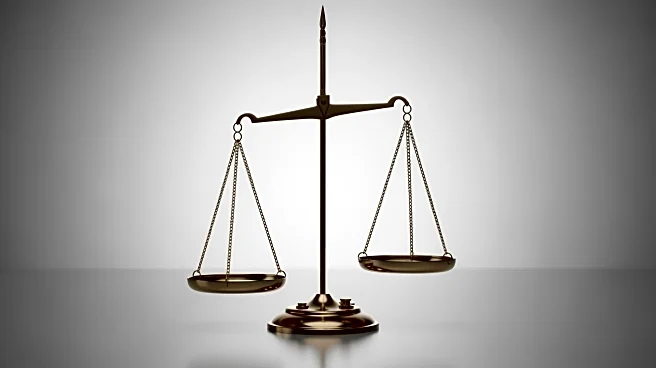What's Happening?
The Palestinian Authority has accused Hamas of resuming the use of schools, hospitals, and other civilian structures as hideouts during a cease-fire period. This claim comes as President Trump issued a warning
that U.S. allies in the Middle East are prepared to intervene militarily if Hamas does not comply with peace agreements. The Palestinian Authority's allegations suggest that Hamas is using these civilian locations to monitor humanitarian aid and suppress dissent. Despite the lack of evidence provided by the Palestinian Authority, similar tactics have been reported during past conflicts with Israel. President Trump emphasized that Middle Eastern countries are ready to deploy troops to Gaza to control Hamas if necessary.
Why It's Important?
The accusations against Hamas and President Trump's warning highlight ongoing tensions in the Middle East, particularly in Gaza. The use of civilian structures by Hamas could complicate humanitarian efforts and increase civilian casualties, raising ethical and legal concerns. President Trump's involvement and the potential for military intervention by U.S. allies could significantly impact regional stability and U.S. foreign policy. The situation poses risks for international relations and could affect global perceptions of U.S. leadership in conflict resolution.
What's Next?
If Hamas continues its current tactics, there may be increased pressure from international communities for intervention. The potential deployment of troops by Middle Eastern countries could lead to escalated military conflict in Gaza. President Trump's statements suggest that diplomatic efforts may continue, but military action remains a possibility if Hamas does not alter its behavior. The situation will likely require careful monitoring by global leaders and humanitarian organizations.
Beyond the Headlines
The use of civilian structures by Hamas raises ethical questions about the protection of non-combatants in conflict zones. It also underscores the challenges of delivering humanitarian aid in areas controlled by militant groups. The international community may need to address these issues through policy changes or increased oversight to ensure aid reaches those in need without empowering militant organizations.









